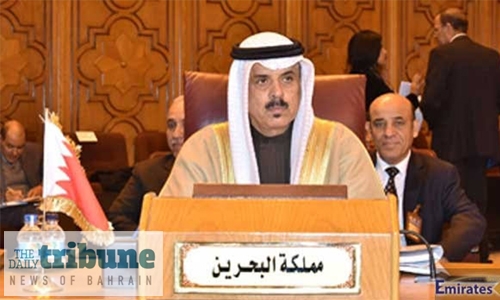Bahrain’s AI success ‘focus of conference’
Bahrain has participated in the 17th conference for ministers responsible for higher education and scientific research in the Arab world, which was under the patronage of President Abdel Fattah El Sisi. The conference was entitled “Artificial Intelligence (AI) and Education: Challenges and bets”.
The Education Minister Dr Majid Al Nuaimi headed the Bahraini delegation The conference reached a number of recommendations, including working to develop general policies and implementation plans to enhance the use of AI in several fields such as education and scientific research, it aimed to prepare teachers to work on AI education and support applying AI education.
The minister stressed the importance role of this conference in setting a timeline for the implementation of the recommendations reached which will be viewed by the executive council of Arab League Educational, Cultural and Scientific Organisation (ALESCO). He praised the support of His Majesty King Hamad bin Isa Al Khalifa in implementing initiatives related to creativity innovation and AI in this sector.
The delegation participated in the exhibition held on the sidelines of the conference, which presented the achievements of 100 years of education in Bahrain. Bahrain has announced that it would pilot new guidelines for the procurement of Artificial Intelligence in the public sector, produced by the World Economic Forum (WEF) Centre for the Fourth Industrial Revolution during the WEF Annual Meeting of the New Champions in Dalian, China.
The announcement was made by WEF and the Bahrain Economic Development Board (EDB), which will work closely with the Bahrain Information and eGovernment Authority. AI has huge potential to streamline and transform service delivery for governments. However, due to lack of understanding and concerns over complexity, public institutions are often wary of adopting AI and lack the knowledge needed to successfully implement the technology, a statement issued by EDB said.
“This spurred the Centre to announce in 2017 that it would bring governments, businesses, start-ups and civil society together to co-design guidelines to empower governments to responsibly and sustainably deploy AI technology. “It partnered with the UK government to help design the guidelines and assess them in real-world conditions. Bahrain will join the UK in piloting the framework and providing feedback.”
Khalid Al Rumaihi, Chief Executive of the EDB said: “When it comes to the governance and regulation of emerging technologies, Bahrain has earned a reputation as the Middle East’s testbed thanks to its innovative regulatory framework, strong technology ecosystem and rapid shift to eGovernment.
“AI can deliver huge benefits to citizens, but it needs a robust framework for successful implementation, and this project with WEF will build a global knowledge-base that can be used by other governments to sustainably and responsibly introduce AI across their public sector institutions.”
Echoing a similar view, Mohammed Ali AlQaed, Chief Executive of the iGA said: “When looking for a partner to roll-out these new AI guidelines, WEF looked to Bahrain. Our public sector is increasing digitised, and we have strong eGovernment services coupled with robust and modern legislation including strong personal data protection laws.
“AI has huge promise for the public sector – but needs a clear, well-resolved framework to deliver on that promise. Bahrain will test the guidelines and, in partnership with WEF, build a knowledge-base that can be shared with every other country around the world.”
Related Posts

